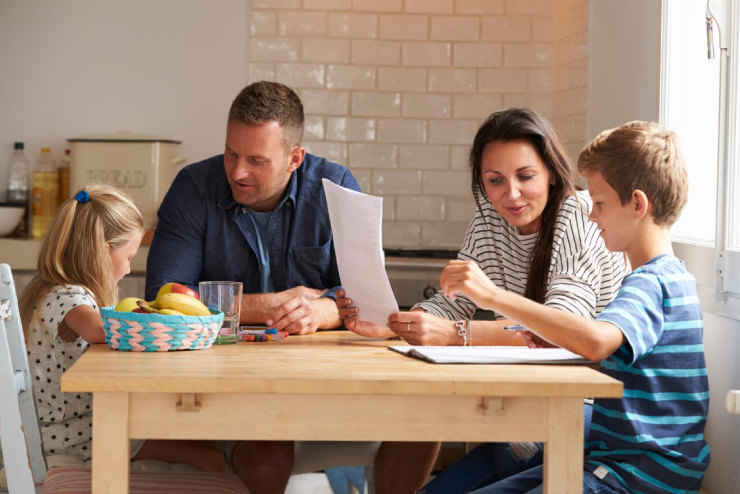
Due to the spread of the Coronavirus disease (COVID-19), mental health for children are also affected like adults due to physical distancing, quarantine, and nationwide school closures all over the world. More so, staying at home in isolation is harder for kids with pre-existing mental health concerns such as anxiety, depression, or ADHD.
As a parent, guardian, or a family member, it is important that we keep our children and teenagers productive during these times. A psychology expert said that children with mental health concerns will need extra support from their parents at this time and that parents should know that it is ok for kids to know they are struggling too. It is best to communicate and work together with your child’s doctor to help your kid get through this pandemic. Here are some tips from our pediatrician for better mental health for children and teens:
1. Stick to a Schedule
Children need daily structure regardless of the pandemic. Having that predictability helps reduce anxiety as well as potential conflicts between parents and kids. Parents should create a schedule that includes regular wake-up and bedtimes, mealtimes, and homeschooling hours, in addition to opportunities for fun and safe socializing such as group chats, virtual house parties, and going for walks or bike rides with a friend at a safe 6-foot distance.
2. Explain the importance of social distancing in an age-appropriate manner
Understanding the concept of social distancing while out in public is age dependent. Teens, for example, seem to have the most difficulty with social distancing, which makes perfect developmental sense. This is the stage where they form social circles. They may need to hear about the details of the pandemic to better understand why social distancing is necessary. Parents can reinforce to teens that even if they are not personally at high risk of serious health consequences. They can still transmit the virus to older adults who have a higher risk of becoming seriously ill, such as their grandparents or other loved ones.
Younger children are much more content to spend time with their parents at home and are more accepting of social distancing. Toddlers and young school-age children have less of a need to see their friends. However, they may still have questions about why they cannot see their classmates, grandparents, and other family members. Parents should keep their explanation about the pandemic simple.
3. Stay Connected through Technology
In addition to phone calls, parents can help children of all ages maintain social ties by embracing online video chatting. Kids can feel connected to friends and family by using apps and software such as FaceTime or Zoom. For a better mental health for children, we may need to set aside restrictions on screen time. If the family rule has been that kids can have screen time only on weekends, that might not be doable right now. Parents may even want to encourage, under supervision, to have their teens use social media apps like Snapchat and Instagram more than they normally would feel connected to their peers.
For children who are suffering from depression, anxiety or have pre-existing medical conditions such as ADD/ADHD, here are a few tips to keep them mentally healthy:
- Set aside “worry time” so your child knows that there is a time to talk to you about what is going on in the world, and there’s still a safe space to talk about their feelings.
- Utilize distraction and relaxation techniques.
- If your child has OCD, work with your child’s therapist to reset exposure practice to something more realistic.
- Be sure to check in with them regularly and consider helping them avoid watching or reading the news. Remember, communication is key.
- Set up opportunities for frequent breaks during the day, especially for physical activity.
- Make sure they are taking their medication as prescribed.
Read Also: How does COVID-19 affect children?
Do you need advice from one of our pediatricians regarding your children’s mental health? Get in touch with us today.


